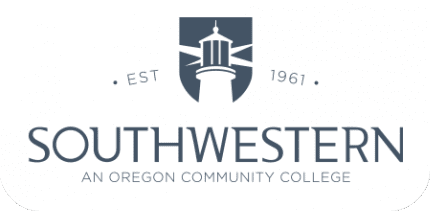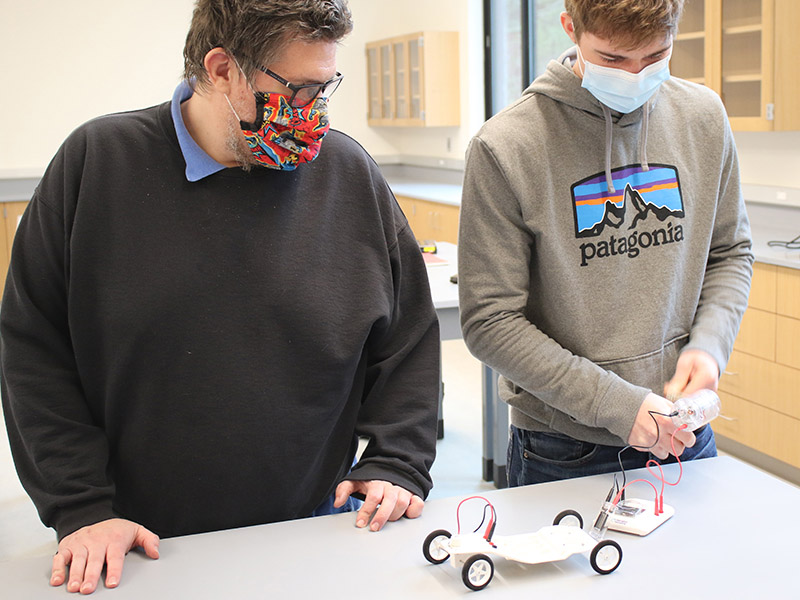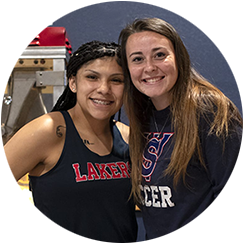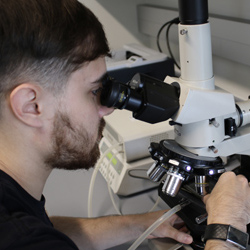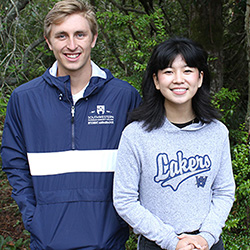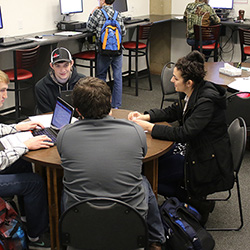Coos Bay, OR – The Oregon NASA Space Grant Consortium’s Faculty Research Award Program has announced it is investing $123,000 in Southwestern Oregon Community College’s Chemistry and Physics/Engineering PRISMS (Providing Research Infrastructure in Space and Material Sciences) project.
This two-year grant will fund faculty and undergraduate research projects, taking advantage of the modern, high-tech laboratories and equipment at Southwestern’s newly opened Umpqua Hall.
“This is a great win for our college. The grant opens the door to top-notch, interactive research opportunities for students at the beginning of their college journey,” said Dr. Aaron Coyner, Associate Professor of Physics/Engineering. “Gaining research experience as an undergraduate shortens the learning curve for science majors as they move on to Southwestern’s partner universities, graduate school or a career in a STEM field.”
Dr. Coyner is a principal faculty coordinator for the PRISMS project, along with Dr. Michael Springer, Associate Professor of Chemistry. They will work do the research side-by-side with their students.
The PRISMS projects creates opportunities for students to do structured, hands-on research and work on publishable discoveries in space physics and material sciences.
The PRISMS projects include research in:
• Modeling and characterization of charged particles that come into the Earth’s interplanetary environment;
• Development and synthesis of new liquid crystal materials for use in flexible solar cells;
• Discovery, analysis and classification of possible micrometeorites found on our coast; and
• Identification and discovery of potential near-Earth asteroids as part of the International Astronomical Search Collaboration (IASC)
Through their research projects, Southwestern’s physics and chemistry students will explore fundamental questions about the origin and composition of matter and radiation that exist in the space between the star systems in our galaxy, and how they interact with Solar wind and Solar energetic events. Students will also get to see and work on analytical studies of micrometeorites and near-Earth asteroid identification. They also will dive into research on liquid crystal photovoltaic cells with the intent of developing self-organizing and self-healing solar cell materials.
Students also are using a state-of-the-art ‘microscope for molecules’ to do university-level, hands-on analysis and research. Special thanks go to Dennis and Janet Beetham who donated the NMR spectrometer for the chemistry department.
“Participating in research is an essential component of learning in a STEM field. Numerous studies have shown a strong correlation between student research and success in STEM,” said Dr. Mike Springer.
This grant provides critical support to facilitate publishable STEM research at Southwestern and allows for a stronger outreach connection to K-12 students and teachers on the south Oregon coast, from Brookings to Reedsport. The College science faculty, in collaboration with students, are looking forward to sharing the results of their research with the community in the future.
